ITRC PFAS Introductory Training
Live Webinar: Thursday, November 6, 2025, 1:00PM-3:00PM EST (18:00-20:00 GMT)
Sponsored by: Interstate Technology and Regulatory Council
Per- and polyfluoroalkyl substances (PFAS) are a large and complex class of anthropogenic compounds whose prevalence in the environment are an emerging, worldwide priority in environmental and human health. The ITRC PFAS Team, formed in 2017, has prepared readily accessible materials to present PFAS information to stakeholders, regulators, and policy makers. The PFAS team represents a diverse cross-section of expertise and experience working on PFAS.
This training will include emerging science on PFAS, including topics such as Properties of PFAS, Fate and Transport, Sampling and Analysis, and Treatment Technologies. The technical presentations will be focused on those who are relatively new to PFAS. The training will last approximately 90 minutes and include time for questions.
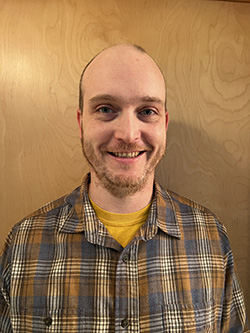 Robert Burgess, Alaska Department of Environmental Conservation (robert.burgess@alaska.gov)
Robert Burgess, Alaska Department of Environmental Conservation (robert.burgess@alaska.gov)
Robert Burgess works as an Environmental Program Specialist with the Alaska Department of Environmental Conservation in the Contaminated Sites Program. He has over 10 years of experience providing regulatory oversight on contaminated site characterization and cleanup at a variety of sites throughout the largest state in the nation, and currently serves as a PFAS subject matter expert for Alaska. Robert earned a B.S. in Biology from the University of Alaska Fairbanks, and a M.S. in Biological Sciences with a research focus on molecular microbial ecology and environmental microbiology from the same institution. Robert joined the ITRC PFAS team in 2017 and has been the co-lead of the Fate and Transport, Site Characterization, and Physical and Chemical Properties subgroup since 2021.
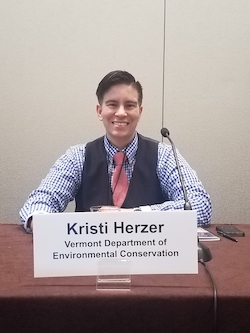 Kristi Herzer, Vermont Department of Environmental Conservation (kristi.herzer@vermont.gov)
Kristi Herzer, Vermont Department of Environmental Conservation (kristi.herzer@vermont.gov)
Kristi Herzer is an Environmental Analyst and Technical Program Lead for the State of Vermont's Department of Environmental Conservation. Kristi is a project manager in the Brownfields Program and the Sites Management Section and promotes the Vermont Brownfields Reuse and Environmental Liability Limitation Act (BRELLA) program. Kristi is the Division representative on VTDEC's Environmental Justice Team, an active member in a cross-agency PFAS workgroup, and co-author of multiple internal and external guidance documents for the regulated community. Since 2017, Kristi has served as a member and subgroup leader for the Sampling and Analysis section of ITRC's PFAS team, and most recently also serves as a subgroup leader of the PFAS Training team. Kristi holds a Bachelor of Science in Physics and Biology from Guilford College and a Master's Degree in Environmental Engineering from the University of Vermont.
 Mitch Olson, Ph.D., PE (mitchell.olson@colostate.edu)
Mitch Olson, Ph.D., PE (mitchell.olson@colostate.edu)
Dr. Olson has 23 years of professional experience in consulting and academia. Prior to joining Colorado State, he provided technical guidance on PFAS projects, coordinated PFAS training events within and outside of Trihydro, delivered technical presentations and webinars, and participated in professional organizations (including ITRC's PFAS team). He also provided technical input on projects involving groundwater and soils impacted with hydrocarbons and chlorinated solvents, including monitored natural attenuation (MNA), natural source zone depletion (NSZD), and active remediation systems. Mitch has a B.S. degree in chemical engineering from the University of Minnesota Duluth and received his M.S. and Ph.D. degrees in environmental engineering from Colorado State University (CSU). Dr. Olson maintains Affiliate Faculty status at CSU and is registered as a Professional Engineer in multiple states.
 Andrew Safulko, PE (Asafulko@brwncald.com)
Andrew Safulko, PE (Asafulko@brwncald.com)
Andrew Safulko is a Senior Environmental Engineer at Brown and Caldwell. Andrew received a BS degree in Environmental Engineering from the University of Colorado at Boulder and a MS degree in Environmental Engineering from the Colorado School of Mines. Andrew supports private and municipal clients in developing tailored PFAS solutions, including site characterization, source identification investigations, treatment, and forensic evaluations. Andrew co-leads the Interstate Technology and Regulatory Councils (ITRC) PFAS Treatment subgroup.
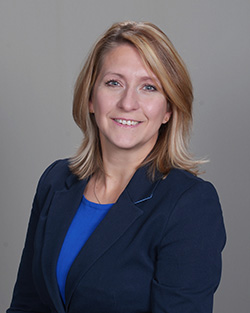 Shalene Thomas, Batelle (thomass3@battelle.org)
Shalene Thomas, Batelle (thomass3@battelle.org)
Shalene Thomas is the Senior Emerging Contaminant Program Manager for Battelle. She has more than 25 years of experience in environmental consulting and has supported State, Federal and industrial clients with emerging contaminants risk management and mitigation strategies. She has supported emerging contaminants projects in 32 different states in 9 of the 10 U.S. EPA regions as well as in Europe, Australia and Canada and has presented on the topic of PFAS and trained professionals in emerging contaminants across the US, Canada, and Australia.
Moderator:
ITRC Training Program (itrc@itrcweb.org)
- These materials will be available by Thursday, November 6, 2025
Webinar Slides and References:
- These materials will be available by Thursday, November 6, 2025
Additional Resources:
Thank you for participating in our webinar. We would like to receive any feedback you might have that would make this service more valuable.
Help & FAQs
- Frequently Asked Questions
- Content Questions?
Call ITRC Training Program at 202-266-4932 or itrc@itrcweb.org - Technical Problems?
Leave us a comment - Cancel Your Registration
- My Participation Records
- CEU Credits and PDHs
Zoom Resources
Before Webinar Day
This seminar will be delivered through Zoom. Participants are encouraged to update to the latest version of the Zoom application for the best experience.
If you are unable to install the Zoom application, most functions will be available if you join just using a modern web browser such as Chrome, Edge or Firefox. We strongly encourage you to run the Zoom Meeting Test prior to attending this webinar. Technical support on the day of the webinar will be very limited and subject to significant delays.
Backup Conference Call
If you cannot participate using online audio, you may join the optional call in line. After checking in for the live event using the instructions listed below, you will see several options to participate. Please click the links in option 4 to follow along by phone and obtain the call in number. If you cannot access the phone number, you may request the call in line from the event moderator in the Q&A or send an email to Jean Balent at balent.jean@epa.gov
Click on "Join Webinar" at the top of this screen, enter your exact first and last name as you registered and enter the number of people attending at your location (including yourself). You should then be taken to the Zoom meeting room. Join with Zoom Application: For those joining with the Zoom application, you may be prompted to sign with a zoom account or join as a guest without signing in.
If joining as a guest, you will be prompted to enter your name and email address. Remember your name, image, video or voice may be visible to others in the live event. When done, click "Join" When it is time for the live event to start, the meeting host will admit you to the live Zoom meeting. Join via web browser (without the Zoom Application): For those joining with a web browser, you may close any pop ups prompting you to download the Zoom app. The next window will allow you to enter your name (first name and last name) and check the box that you are not a robot. Click the blue join button. You may also be asked to provide your email address before joining the room. Remember your name, image, video or voice may be visible to others in the live event. When done, click "Join" When it is time for the live event to start, the meeting host will admit you to the live Zoom meeting. You may need to periodically refresh the browser window to confirm if the host has admitted you. The presenters will control what slide you are viewing. You may submit questions online for the instructors to answer during the webinar by typing in the "Q&A" area. It is not necessary to wait until the question and answer periods to submit questions. At the end of the webinar you will be guided to our feedback form and links to additional resources, including the complete presentation. These links will remain active after the webinar. Provided for your convenience. Importing or accepting the invitation within this iCalendar file is not required, and declining the invitation does not cancel your registration. For additional information on iCalendar, please see our
iCalendar Help It is EPA's policy to make reasonable accommodation to persons with disabilities wishing to participate in the agency's programs and activities, pursuant to the Rehabilitation Act of 1973, 29 U.S.C. 791. Any request for accommodation should be made to ITRC Training Program at 202-266-4932 or itrc@itrcweb.org, preferably one week or more in advance of the seminar, so that EPA will have sufficient time to process the request. EPA would welcome specific recommendations from requestors specifying the nature or type of accommodation needed. EPA welcomes specific recommendations from requestors specifying the nature or type of accommodation needed. Please note that CLU-IN provides both alternate phone call-in options and closed captioning for all webinars, and requests for these specific accommodations are not necessary.
Webinar Day, Checking In
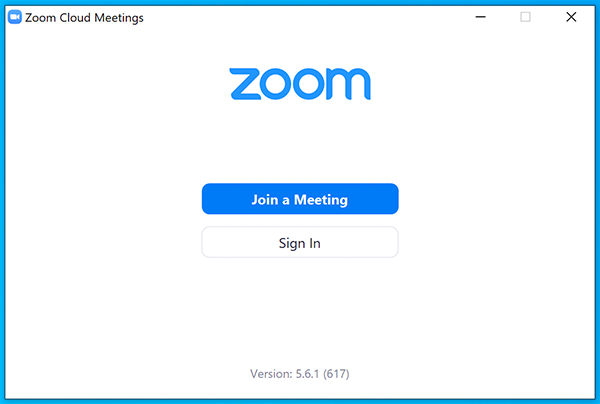
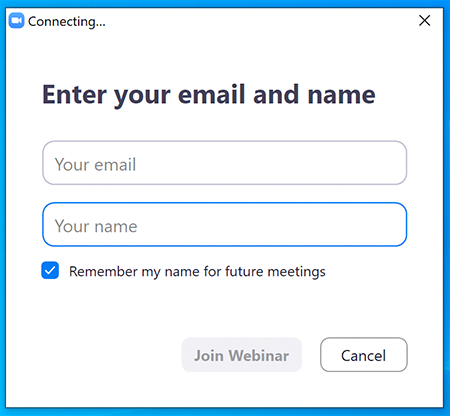
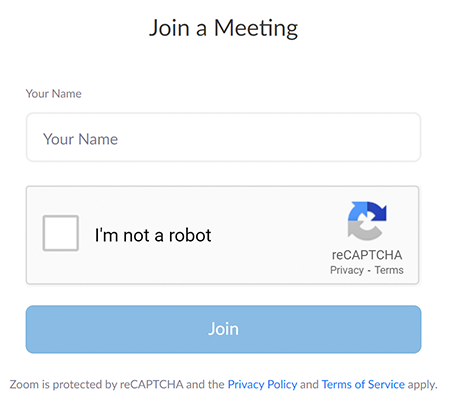
Moving Through Slides
Feedback & Links to Additional Resources
iCalendar File
Rehabilitation Act Notice for Reasonable Accommodation
Rehabilitation Act Notice for Reasonable Accommodation
It is EPA's policy to make reasonable accommodation to persons with disabilities wishing to participate in the agency's programs and activities, pursuant to the Rehabilitation Act of 1973, 29 U.S.C. 791. Any request for accommodation should be made to ITRC Training Program at 202-266-4932 or itrc@itrcweb.org, preferably one week or more in advance of the webinar, so that EPA will have sufficient time to process the request. EPA would welcome specific recommendations from requestors specifying the nature or type of accommodation needed. EPA welcomes specific recommendations from requestors specifying the nature or type of accommodation needed. Please note that CLU-IN provides both alternate phone call-in options and closed captioning for all webinars, and requests for these specific accommodations are not necessary.
Webinar Recording
By participating in this CLU-IN webinar, you automatically agree to authorize recording of audio and visual content presented during this live event and consent to subsequent use of this recording in the public domain by the U.S. Environmental Protection Agency. This recording may include questions, comments and poll responses provided by you during the live event in addition to your name, voice, image or likeness. This recording will be made available after the conclusion of the live event as part of the CLU-IN webinar archives, and will remain available indefinitely. If you do not wish to consent to the recording, please do not join the live event, and contact Jean Balent at 202-566-0832 or balent.jean@epa.gov to discuss your concerns.
Content Disclaimer
This webinar is intended solely to provide information to the public. The views and opinions expressed as part of this webinar do not necessarily state or reflect those of the U.S. Environmental Protection Agency. It is not intended, nor can it be relied upon, to create any rights enforceable by any party in litigation with the United States, or to endorse the use of products or services provided by specific vendors. With respect to this webinar, neither the United States Government nor any of their employees, makes any warranty, express or implied, including the warranties of merchantability and fitness for a particular purpose, or assumes any legal liability or responsibility for the accuracy, completeness, or usefulness of any information, apparatus, product, or process disclosed, or represents that its use would not infringe privately owned rights.

